If you’ve ever applied for a job (and I’m assuming most of you have), you know the feeling of getting rejected from a position you thought you were qualified for. More often than not, its because the hiring manager is skimming your resume looking for buzzwords, or a certain style of formatting, and if they don’t find what they’re looking for, they’ll discard your resume like a used napkin. A travel nurse resume is no different, and it’s crucial that yours is up to snuff. Half the battle is knowing how to optimize your resume for AI, so that it actually makes it to a human being who can interpret it. So what can you do to separate your resume from the rest? It’s easier than you might think.

How to Beat the Bots
Hiring managers often utilize an Applicant Tracking System (ATS) to keep track of travel nurse resumes. An ATS helps hiring managers rank and filter applicants based on keywords in your resume that match the job description. If the ATS can’t find these keywords in your resume, chances are your resume won’t make it past the computer. Fortunately, there are some tricks that can help you beat the bots:
- Mirror the exact language of the job description in your resume
For example, if the job requires you to administer medication, clearly list your medication administration experience in your qualifications summary.
- Headline your most relevant experience
In other words, highlight the information that’s most pertinent to the job you’re applying for in your qualifications summary (i.e. licenses, certifications, trauma experience, teaching hospital experience).
- Keep your formatting simple and stack your information
Use plain traditional fonts like Arial or Times New Roman, and list all relevant information neatly in one section.
- Be consistent and stick to industry standard language
Be consistent with formatting, and try to use the industry standard language rather than colloquial phrases.
- Use conventional headings and keywords
Use traditional headings to break up your resume and try to place keywords from the job description throughout your resume.
Details Matter
Before you apply, spend some time going through your resume to make sure all the information is accurate. Checking to see if your phone number and email address is up-to-date ensures that your recruiter can easily contact you about potential openings. Spelling and grammatical errors may seem minor, but can cast a negative light on your resume, and will confuse the ATS program. Your recruiter will help you with specific formatting based on facility requirements, but the point is, being thorough when drafting your resume can only work in your favor. Experts in the industry agree that there are some key components to every good travel nurse resume.

1. Licenses and Certifications
This seems like a no-brainier, but it’s imperative that you list all your current licenses and certifications. Is your RN license a single state or a multi-state compact license? What is the expiration date for your BLS or ACLS certifications? These are questions that any hospital or staffing agency would want to know, and would be worth your time to include. If you have special certifications like PALS, NIH Stroke Scale, or TNCC, it would behoove you to include all additional certifications you’ve earned, along with the expiration date. Your recruiter can help you determine which certifications are relevant for specific jobs, but if you leave them in the dark, it will only hurt your chances of landing an assignment.
Looking for your next gig? Search through our available jobs!
2. Work History
This is your chance to persuade your potential employer that you’re the best person for the job, so be detailed in your descriptions. Just listing the facility where you last worked, and your dates of employment isn’t going to cut it. What unit did you work in primarily? What was your role within the unit? Did you float between multiple units? What was the nurse-to-patient ratio like at your last facility? If you can answer these questions for every facility you’ve worked at, your chances of being hired will increase ten fold.

When it comes to formatting, including a summary of your qualifications at the top of your resume is very helpful for hiring managers and recruiters. This summary would include the most relevant information, such as licenses, certifications, and any special skills that are applicable to the specific job.
Are you a travel nurse looking for a free resume review? Submit here!
Furthermore, list the names of the actual facilities you worked at, instead of the hospital system or staffing agency that you worked for. For example if you worked for Kaiser Permanente, you would list the specific name of the hospital or clinic, instead of just Kaiser Permanente. Or, if you worked for Axis Medical Staffing, list the facilities you traveled to while you were working for Axis. This helps ensure your resume can be submitted quickly, and there’s no confusion about your past employment. If you have gaps in your work history greater than 30 days, you’ll want to explain those gaps on your resume. Gaps don’t automatically disqualify you, and many travel nurses have gaps in their resume because of schooling, extended leave, or working outside of nursing.
3. Education and Skills
If you have multiple degrees, focus on just your nursing degrees when applying. Other degrees you’ve earned are not relevant, and will make your travel nurse resume more convoluted. Whether you have a BSN, or a practical nursing diploma, you should list the full name of the school or online program you received your degree from, along with your date of graduation. You will have to fill out a separate skills checklist, but listing a few standout skills on your resume will also set it apart and help your recruiter find you a position in a setting you’re already used to.

Moral of the story? Your recruiter will have a much easier time advocating for you if they have all the information upfront, and don’t have to hassle you for clarification. Having a well-formatted and detailed resume makes it easier for your recruiter to identify your skills, match you to the perfect assignment, or suggest contracts that will cross-train you in new specialties. They know what the hiring managers are looking for, and can tailor your resume to every job you apply to.
So don’t delay! Get to know our Rock Star Recruiters today!
- Five Reasons to Visit Washington State - October 11, 2023
- Travel Nursing Assignments – Seattle: Live Like A Local - October 11, 2023
- Traveler of the Month: Ciene G! - January 27, 2023

